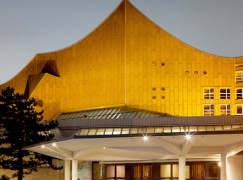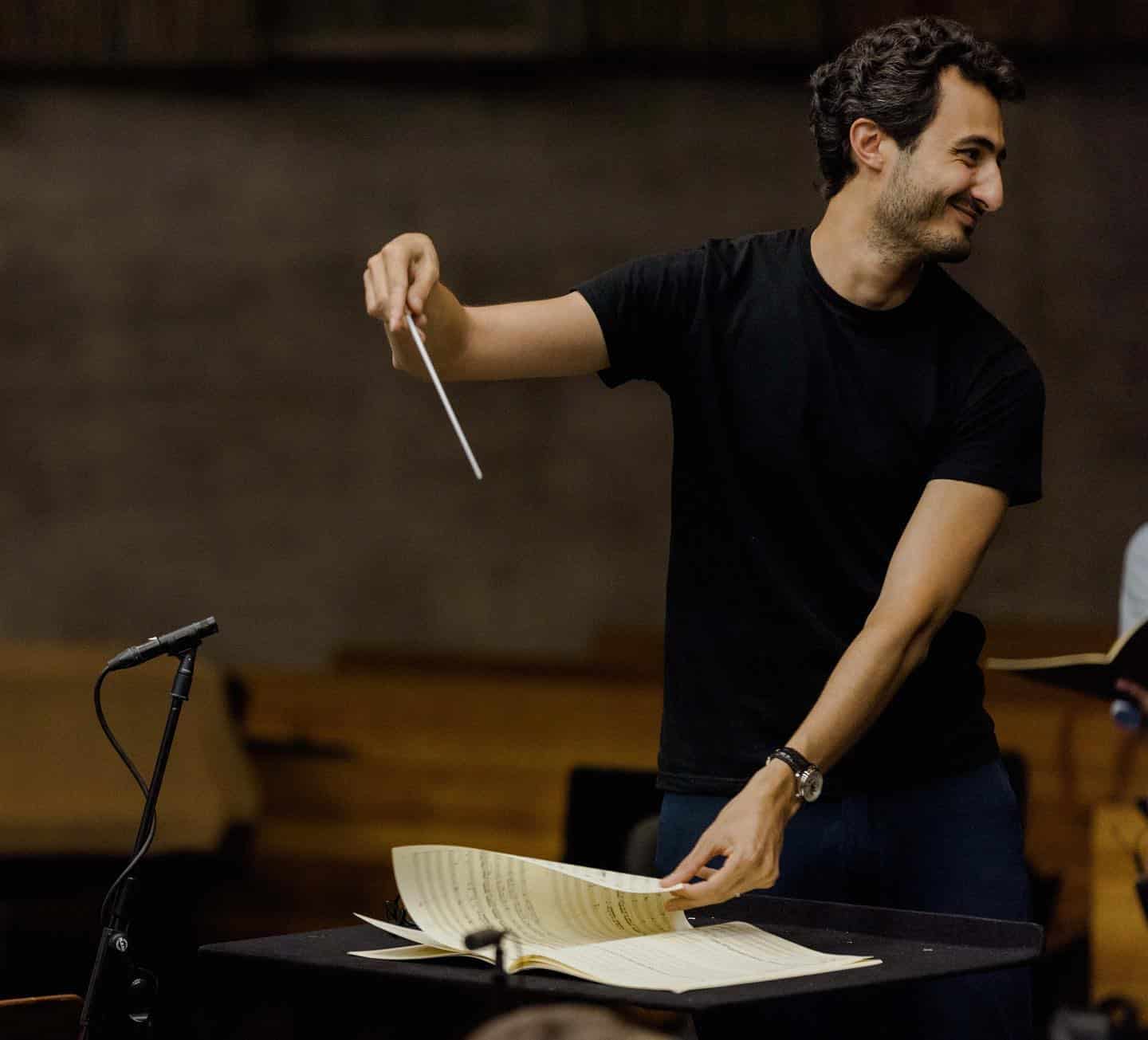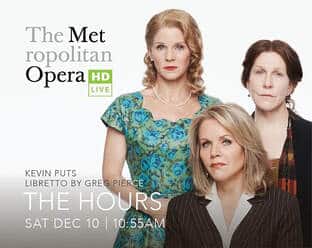Berlin gets million-Euro new music fund
mainThe Berlin government has put 1.1 million Euros into a fund for promoting new music.
Brits need not apply.
(Thanks, Boris).
Story here.


The Berlin government has put 1.1 million Euros into a fund for promoting new music.
Brits need not apply.
(Thanks, Boris).
Story here.

Boston Symphony pulled one out of the fire…

The Berlin State Opera communicated tonight that its…

From NPR LA: The Long Beach Opera has…

Memo to Peter Gelb: Don’t read the Opera…

Session expired
Please log in again. The login page will open in a new tab. After logging in you can close it and return to this page.
That’s federal funding for Neue Musik projects throughout Germany, not only Berlin, isn’t it?
You are correct. It’s a federal decision ro support contemporary music in Germany and this decision was made in Berlin as Germany’s capital.
I’m sure the Greek people are delighted.
(Note: They come from Greece – a place that nobody here wants to talk about, for some reason.)
If it’s a German fund for Germany, and for Germany composers then no other nationality is welcome. If it’s a German fund for European works, then British composers presumably can still benefit, as the UK, for now and probably some time hence, remains a member of the EU. If it’s a German fund for new works regardless of composer origin, then British composers can presumably apply too. Why the negativity, and what’s it got to do with Boris?
More likely it’s a fund to support new music activities in Germany, even if they include resident foreigners, such as myself, and non-resident foreigners when they are invited in for projects. Even the Deutscher Musikrat, which was created to promote German music, provides funds to foreigners who have held legal residence for at least five years.
We don’t need Euro funds, with our weekly 350£ money taken back from the EU now going into the National Health System, we have more than enough to give some to the arts (if we want, but we won’t, because who needs new music when ye olde English music of my generation is plenty good for me). Warning to Sir Simon, don’t bring back that Neue stuff from Berlin when you come back to London, you better program Land of Hope and Glory every season. Ahhh, that’s music.
Germany is still, after 70 years, suffering from postwar modernism as a moral imperative, to demonstrate the break with an inhuman past, and celebrate it with inhuman music. It had become something like a cultural religion, with Adorno as its Redeemer, which got out of hand because of the theoretical basis advocating continuous revolution, transgression, breaking new ground, be progressive, daring, and utterly original like everybody else in the avantgarde movement. In the end, the new music centre of Darmstadt reinforces its groundbreaking prominence:
http://www.youtube.com/watch?v=jwlCD2y2tBA
And THIS while in the same country, a classical music practice celebrating the Past is one of the best in the world. Safely locked into the glass box of history, German musical culture can be enjoyed without guilt feelings….. one would wish for some real musical talents daring to open-up the glass box and bring something of the German musical creativity back to life.
So, it will be very interesting to see how new funding will stimulate inheritants of one of the most impressive cultural achievements of humanity into new creation – more of the same? Or reinventing their tradition? Or hiring a couple of Americans to show them the way?
Right!
Let’s “compose” some pseudo-Ravel instead…
https://www.youtube.com/watch?v=m-YXULKwDy4
Because, after all, nothing has happened in music in the last hundred years.
One of Slipped Disc’s most enduring leitmotifs: the never-ending John Bortslap Adorno/German modernism smack-down versus the recycling of Bortslap’s own attempts at pushing the Ravel envelope. And the winner is……….YouTube!
There is no ‘progress’ in art, as there is none in music:
http://www.futuresymphony.org/the-myth-of-progress-in-the-arts/
It appears that a committee of experts will decide about spending the subsidies for projects:
http://blogs.nmz.de/wm2014/2016/07/01/tropfen-auf-den-kalten-stein-bundesfonds-fuer-zeitgenoessische-musik/
This means, that the members of the jury will select the type of new music which, always and necessarily, will be the type they themselves represent. This will merely strengthen conformity and the circle of vested interests. It would be much better to give earmarked sums to ensembles and orchestras, for commissions and for extra rehearsing (especially for the orchestras that would be welcome), so that the performers would be free to make their own choice and no central selection body deciding about aesthetic types.
In the Netherlands the committee type of selection of subsidies for new music has created a Soviet system where ‘experts’ are also, directly or indirectly, on the receiving end. A very strong example of how NOT to support new music.